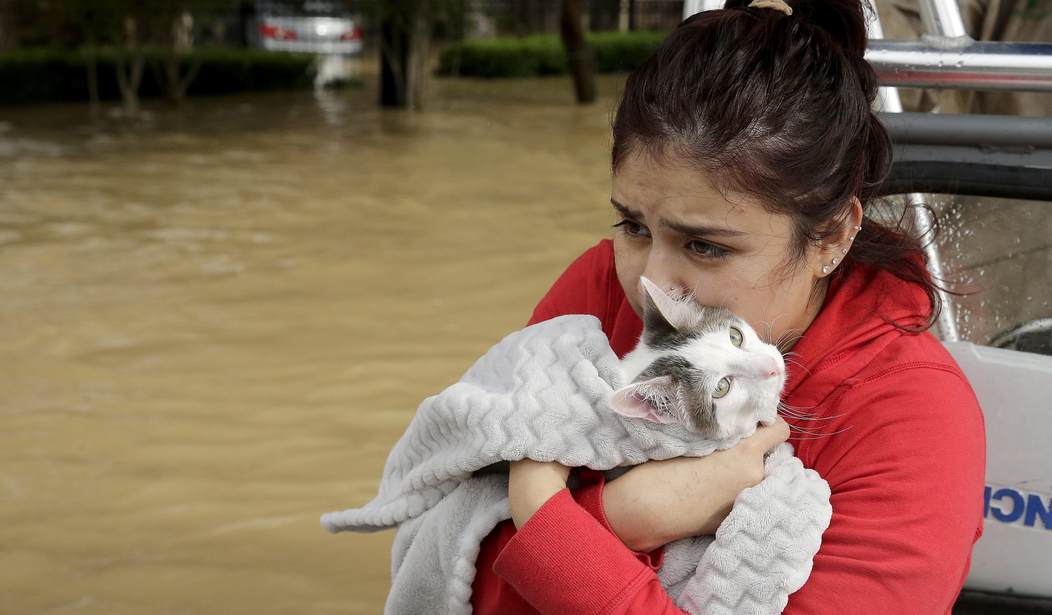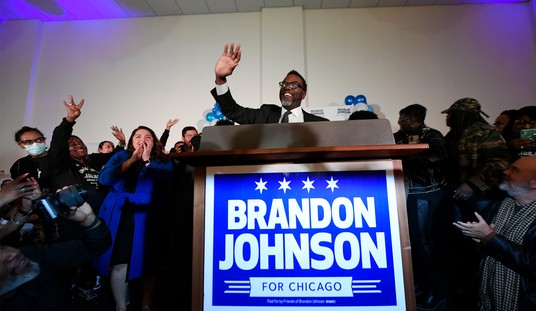Hurricane Harvey has left at least 44 people dead, and that number is likely to increase during clean-up. The storm has displaced over 30,000 people, cost an estimated $190 billion in damage, and dropped 19 trillion gallons of water over southeast Texas (and 5.5 trillion gallons over Louisiana). Harvey isn’t done yet, and Hurricane Irma is coming up close behind.
Where is God in all this? Christians believe in a good, loving God. How could such devastation take place on His watch?
This is an age-old problem, and the answers to it are far from easy. Even if the answers are true, they are likely to fall on deaf ears and sound callous to those who are truly suffering. Ultimately, God does not provide a justification or an answer, but something far greater.
Furthermore, despite the utter devastation from Hurricane Harvey, even such a natural disaster pales in comparison to the evil, injustice, genocide, death, and disease suffered by people across the centuries. To those in the center of pain and suffering, the goodness, love, and even existence of God can seem a very false indeed.
Before addressing where God was in Houston during Harvey, it is important to delve into the big picture — what C.S. Lewis succinctly called The Problem of Pain.
“If God were good, He would wish to make His creatures perfectly happy, and if God were almighty, He would be able to do what He wished. But the creatures are not happy. Therefore God lacks either goodness, or power, or both,” Lewis wrote.
The Christian scholar addressed God’s goodness and His power, arguing that God can only do things that are intrinsically possible. He cannot both give humans free will and not give it to them at the same time, for example. Furthermore, God’s goodness is of a higher order than human goodness, and His overall plan may be infinitely good and still involve pain and suffering.
In his book The Problem of God: Answering a Skeptic’s Challenges to Christianity, Vancouver pastor Mark Clark addressed this issue head on. “We must admit that an omnipotent being could permit as much evil as he pleased ‘so long as for every evil state of affairs he permits, there is a greater good.'”
Furthermore, the very strength of the argument against God in the “problem of pain” poses a problem. It supposes that human suffering is a categorical evil. As Clark asked, “Where do we get the idea that human beings are important, that human life has value, and that human beings should be protected and loved instead of tortured and disposed of?”
“When I was an atheist, my argument against God was that the universe seemed so cruel and unjust. But how had I got this idea of just and unjust?” Lewis wrote in Mere Christianity. “What was I comparing this universe with when I called it unjust? Of course I could have just given up my idea of justice by saying that it was nothing but a private idea of my own. But if I did that, then my argument against God collapsed, too.”
The biggest problem with naturalistic Darwinistic atheism is that people have a sense of right and wrong, and people bristle at the idea that these are just traits of evolution, rather than true moral signposts. Christianity has an answer to this: Human beings, made in the image of God, intrinsically know good and evil, even though their consciences have been clouded by sin.
This view makes sense of the evils throughout history, and provides a perspective from which Americans can judge Adolf Hitler and Joseph Stalin as objectively evil. But it also serves as a warning, that humans are sinful and may not see their own wickedness in its proper light. This is one of the reasons Americans have trouble conceiving the justice of hell.
Pain is part of God’s justice in rewarding sinners, but very often the wicked get away with little pain in this life, while those who seem like good people suffer the most.
In the Bible, God’s chosen people seem to suffer the most, and the Psalms are chock-full of complaints about the success of the wicked and the suffering of the righteous.
As Clark wrote, “All through the Scriptures God uses suffering to make people who they are, to refine them. Moses, Abraham, David, Job, Paul, and of course, Jesus himself are examples of lives in which the most awful evil and suffering is turned into a greater good.”
In his book David and Goliath, Malcolm Gladwell documented the lives of many successful entrepreneurs and leaders who achieved success not in spite of challenges and suffering in life, but because of them. Gladwell called this “the advantage of disadvantage,” arguing that challenges in life helped strengthen these people and make them successful.
The best example of this actually comes from the Bible itself. “You meant evil against me, but God meant it for good,” Joseph told his brothers in Genesis 50:20. Those very brothers betrayed Joseph, selling him into slavery, but through his faithfulness, hard work, and faith in God, Joseph was able to rise to the position of Grand Vizier in Egypt and save his family from a famine. Talk about “the advantage of disadvantage!”
Stories of heroism have come left and right out of Hurricane Harvey. The Cajun Navy, the Chick-fil-A saving a stranded family, fathers carrying their wives and children to safety. But none of this makes the suffering any less real.
Clark quoted Tim Keller’s Walking with God through Pain and Suffering, in discussing the Christian attitude to suffering: “Christianity teaches that, contra fatalism, suffering is overwhelming; contra Buddhism, suffering is real; contra karma, suffering is often unfair; but contra secularism, suffering is meaningful.”
Suffering is the gap between satisfaction and desire. Buddhists suggest pulling desire back to match satisfaction, while the modern West advises pushing satisfaction up to meet desire. Christianity says the problem is in the heart. And the solution? God Himself entering that suffering and giving it meaning.
Ultimately, Christianity does not present an answer to the problem of suffering. It presents a person — Jesus Christ, the God who created the universe, in human flesh, stripped almost naked, whipped and scourged, and executed in a horrific, painful, and humiliating manner.
So where is God in Hurricane Harvey? God is with the family stranded on top of their roof in the flooding. God is with the people who abandon everything as the waters destroy their property. God is with the drowning men and women. Because according to the Bible, God died, too – and He didn’t just die.
Jesus Christ rose again from the dead three days later. He used that suffering to redeem all of humanity.
None of this makes it any easier for people to lose their homes, to wait in vain for rescue, or to die in such horrible disasters. That’s not the point. The point isn’t to answer all the questions or to make the suffering go away, but to join the people in the midst of their anguish. God says to these people, “I see your suffering, it is unjust, and I suffered first. Learn from me how to suffer, and it will be worth it.”
In the words of St. Paul, “For I consider that the sufferings of this present time are not worth comparing with the glory that is to be revealed to us.” (Romans 8:18) That is the hope of Christianity — that Jesus Christ suffered unjustly for every man, woman, and child who places their faith in Him, and that at the last day they will be raised in glory to join God Himself.
“It’s like in the great stories, Mr. Frodo,” Samwise Gamgee said in The Lord of the Rings. “The ones that really mattered. Full of darkness and danger they were, and sometimes you didn’t want to know the end because how could the end be happy? How could the world go back to the way it was when so much bad had happened?”
“But in the end, it’s only a passing thing, this shadow,” Sam continued. “Even darkness must pass. A new day will come, and when the sun shines, it’ll shine out the clearer. Those are the stories that stuck with you, that meant something, even if you were too small to understand why.”
If you believe in Jesus Christ, and you suffer, God is there with you, suffering. He promises a new life and glories you are not able to think of. The suffering is real, it is horrible, but it is meaningful, even if you and I are too small to understand why.








Join the conversation as a VIP Member